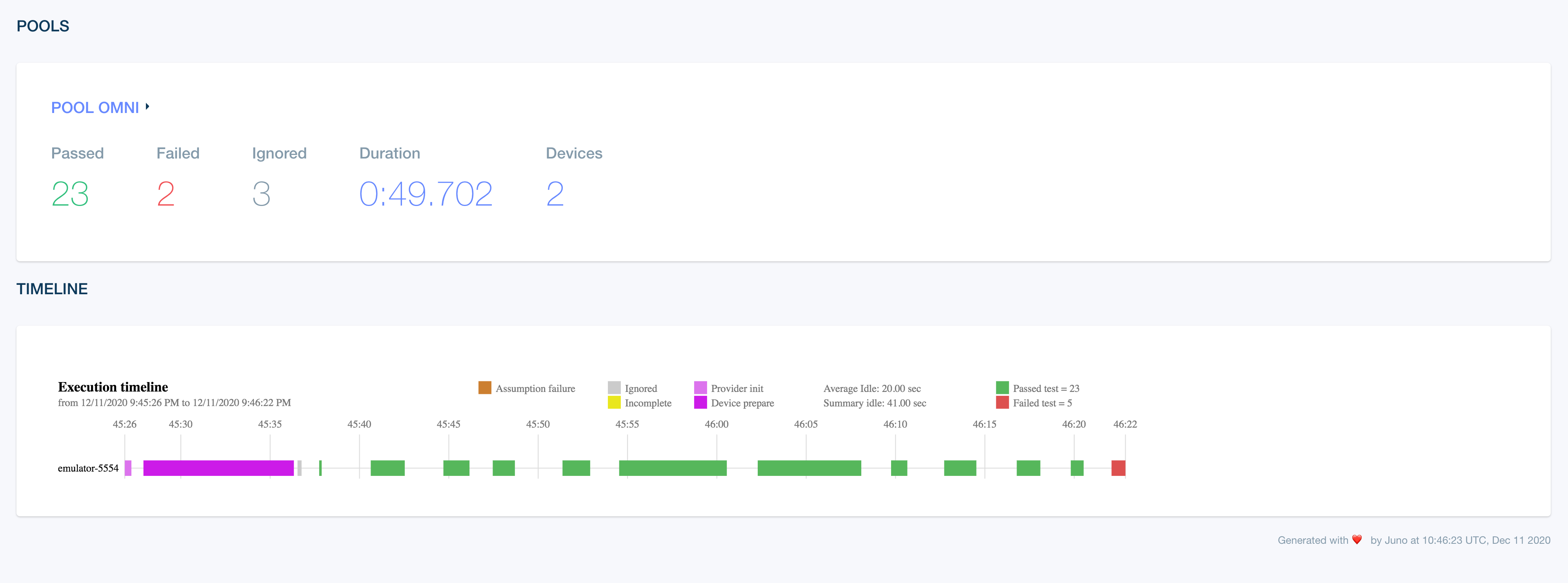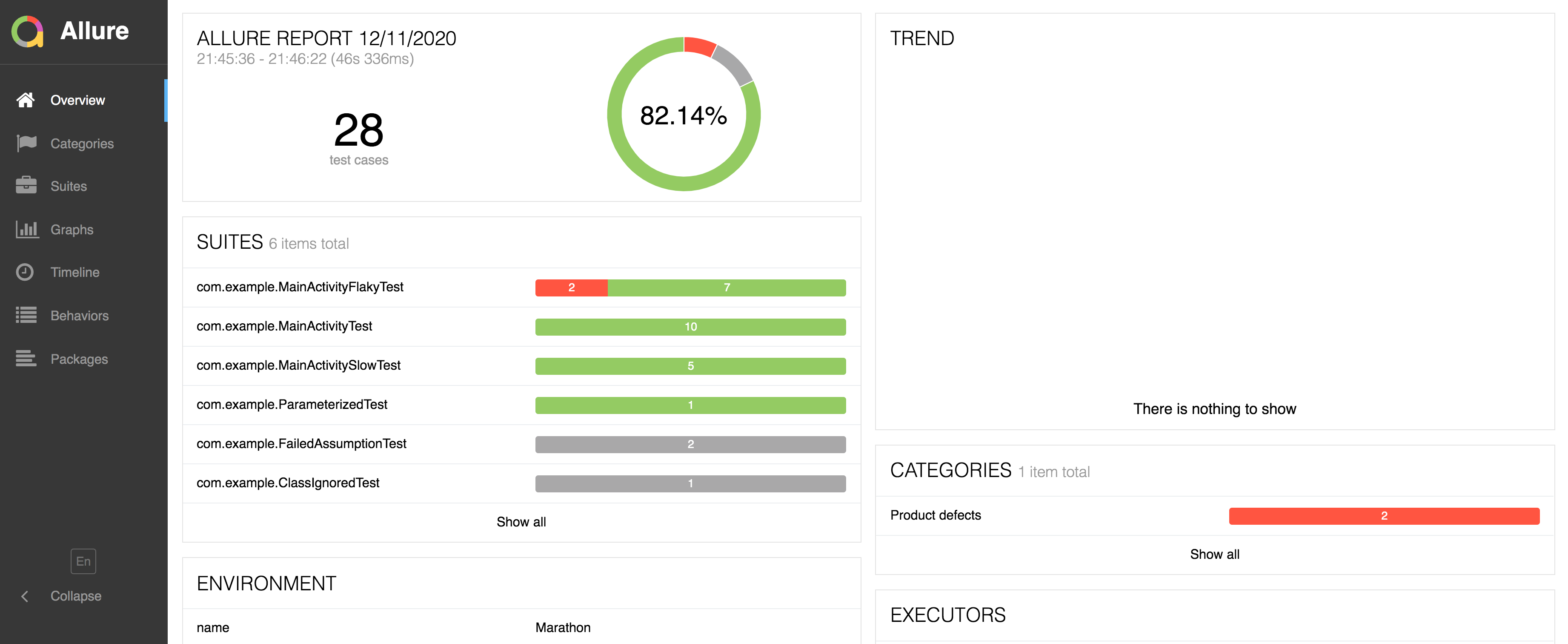Introduction
Marathon will help you execute tests in the shortest time possible. Here is a 2 minute guide on how to get started:
Install
brew tap malinskiy/tap
brew install malinskiy/tap/marathon
If you don't have homebrew installed head over to https://brew.sh for instructions on how to install it
Configure
Configuration is done via a yaml file. By default marathon will look for a file named Marathonfile.
For example, place the following contents in the Marathonfile in the root of your project:
- Android
- iOS
name: "My awesome tests"
outputDir: "marathon"
debug: false
vendorConfiguration:
type: "Android"
applicationApk: "dist/app-debug.apk"
testApplicationApk: "dist/app-debug-androidTest.apk"
name: "My application"
outputDir: "derived-data/Marathon"
testClassRegexes: ["^((?!Abstract).)*Tests$"]
vendorConfiguration:
type: "iOS"
bundle:
application: "sample.app"
testApplication: "sampleUITests.xctest"
testType: xcuitest
Don't forget to replace the applicationApk, testApplicationApk or application, testApplication
iOS also requires a small configuration file about your devices, see here for more information
Execute
Connect execution devices, e.g. for Android this would be a physical phone or an emulator, then execute the tests:
foo@bar:~$ marathon
00% | [omni]-[127.0.0.1:5037:emulator-5554] com.example.AdbActivityTest#testUnsafeAccess started
03% | [omni]-[127.0.0.1:5037:emulator-5554] com.example.AdbActivityTest#testUnsafeAccess failed
03% | [omni]-[127.0.0.1:5037:emulator-5554] com.example.ScreenshotTest#testScreencapture started
05% | [omni]-[127.0.0.1:5037:emulator-5554] com.example.ScreenshotTest#testScreencapture failed
05% | [omni]-[127.0.0.1:5037:emulator-5554] com.example.ParameterizedTest#test[0] started
08% | [omni]-[127.0.0.1:5037:emulator-5554] com.example.ParameterizedTest#test[0] ended
...
Analyze results
After the execution marathon will print out a summary of the test run which gives a generic overview of what happened during the execution:
foo@bar:~$ marathon
...
...
...
Marathon run finished:
Device pool omni:
22 passed, 15 failed, 3 ignored tests
Failed tests:
com.example.MainActivityFlakyTest#testTextFlaky
...
Flakiness overhead: 1849ms
Raw: 22 passed, 15 failed, 3 ignored, 6 incomplete tests
com.example.MainActivityFlakyTest#testTextFlaky failed 1 time(s)
Incomplete tests:
com.example.BeforeTestFailureTest#testThatWillNotSeeTheLightOfDay incomplete 3 time(s)
Total time: 0H 1m 45s
Marathon execution failed
For CI there is a JUnit xml marathon_junit_report.xml generated in the $outputDir/tests/omni folder where $outputDir is a directory that you’ve defined in the marathon configuration:
foo@bar:~$ cat marathon/omni/marathon_junit_report.xml
<?xml version="1.0" encoding="UTF-8"?>
<testsuite name="omni" tests="40" failures="15" errors="0" time="71.093" skipped="3"
timestamp="2023-01-13T05:53:59">
<testcase name="testUnsafeAccess" time="1.357" classname="com.example.AdbActivityTest">
...
There is also an assortment of html reports for you to analyze:


Next steps
There are many more customisations and optimisation that you can do for your test runs that can help you speed up the test execution and/or battle reliability issues. Continue reading the docs to understand how marathon can help you.